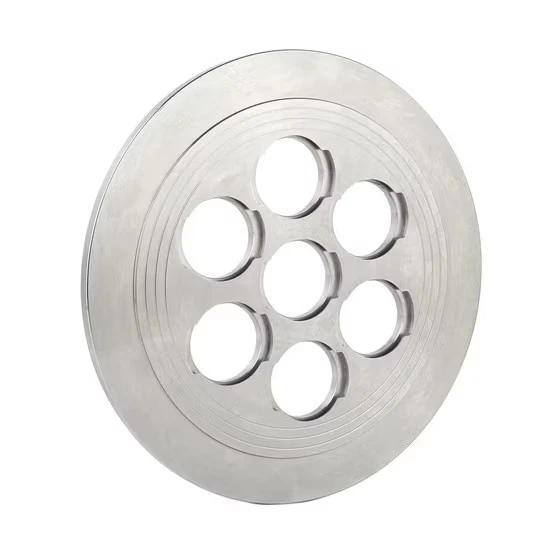Understanding Stainless Steel Flanges: Essential Components in Industrial Applications
2025-02-06
Flanges are critical components in many industries, serving as connectors in piping systems to ensure leak-proof and secure joints between pipes, valves, pumps, and other equipment. Among the various types of flanges, stainless steel flanges stand out for their durability, corrosion resistance, and versatility, making them a preferred choice in industries ranging from chemical processing to oil and gas.
In this blog post, we will explore what stainless steel flanges are, the different types available, their applications, and the benefits that make them essential in industrial systems.
What Are Stainless Steel Flanges?
A flange is a mechanical component that joins two pieces of equipment—usually pipes or valves—by bolting them together. Flanges are typically used in piping systems to provide a strong, stable connection and facilitate easy maintenance or replacement.
Stainless steel flanges, as the name suggests, are made from stainless steel, a corrosion-resistant metal alloy that includes iron, chromium, and nickel. Stainless steel's inherent resistance to rust, stains, and corrosion makes it the ideal material for flanges in environments that expose them to moisture, chemicals, and high temperatures.
Types of Stainless Steel Flanges
Stainless steel flanges come in a variety of designs, each suited to specific applications. Some common types of stainless steel flanges include:
1. Weld Neck Flange (WN Flange)
- Weld neck flanges are characterized by a long, tapered neck that provides strong welds to the pipe. The design minimizes stress concentration and is ideal for high-pressure and high-temperature applications. They are commonly used in industries such as chemical processing, oil and gas, and power generation.
2. Slip-On Flange (SO Flange)
- As the name suggests, slip-on flanges slide over the pipe and are then welded into place. These flanges are easier to install than weld neck flanges and are typically used for lower pressure systems. They are more cost-effective and are commonly used in industries like water treatment and HVAC systems.
3. Blind Flange
- Blind flanges are solid flanges used to seal the end of a pipe. They are ideal for systems that require temporary closures or where future pipe additions might be needed. Blind flanges are frequently used in construction and maintenance operations.
4. Threaded Flange
- Threaded flanges have internal threads that allow them to be screwed onto the pipe without welding. This design is particularly useful for systems where welding is impractical or impossible, such as in sensitive environments or when working with small pipe sizes. They are used in both low- and high-pressure systems.
5. Socket Weld Flange (SW Flange)
- Socket weld flanges have a socket-like connection that allows the pipe to be inserted into the flange, providing a clean, smooth connection. These flanges are often used in high-pressure applications in the oil, gas, and petrochemical industries.
6. Lap Joint Flange
- Lap joint flanges are used in conjunction with a lap joint stub end and are commonly used in systems that require frequent disassembly and maintenance. They provide easy access to the system, making them a favorite in the pharmaceutical and food processing industries.
Key Benefits of Stainless Steel Flanges
1. Corrosion Resistance
- One of the most significant benefits of stainless steel is its resistance to corrosion. Stainless steel flanges can withstand harsh chemicals, moisture, and extreme temperatures without succumbing to rust or deterioration. This makes them an ideal choice for applications in corrosive environments, such as marine, chemical, and food processing industries.
2. Durability and Strength
- Stainless steel is known for its robustness, making stainless steel flanges highly durable and able to handle high pressure and temperature fluctuations. They maintain their strength over time, even in challenging industrial settings.
3. Versatility
- Stainless steel flanges are versatile and can be used across various industries, including oil and gas, petrochemical, pharmaceutical, food and beverage, and water treatment. Their adaptability to a wide range of temperatures, pressures, and fluid types makes them invaluable in numerous applications.
4. Hygienic and Easy to Maintain
- Stainless steel is a non-reactive material, making it ideal for systems that require sanitary conditions, such as in the food and beverage industry. The smooth surface of stainless steel flanges prevents the buildup of bacteria and other contaminants, promoting hygienic operations. Additionally, stainless steel flanges are easy to clean and maintain, reducing downtime and improving operational efficiency.
5. Cost-Effective Long-Term
- While stainless steel flanges may come with a higher upfront cost compared to other materials, their durability and resistance to corrosion make them a cost-effective choice in the long run. Their ability to last longer and perform consistently reduces the need for frequent replacements, ultimately saving money on maintenance and repairs.
Applications of Stainless Steel Flanges
Stainless steel flanges are used in a broad range of industries and applications, including:
Chemical Processing: Flanges are used to connect pipes that carry chemicals, where corrosion resistance is essential for safe and reliable operation.
Oil and Gas: Stainless steel flanges are used to connect pipelines that transport oil and gas, ensuring a secure, leak-proof joint even under high-pressure conditions.
Water and Wastewater Treatment: Flanges are used to connect piping systems that transport water or wastewater, offering corrosion resistance in challenging conditions.
Food and Beverage: Sanitary stainless steel flanges are used to maintain clean and hygienic piping systems in food processing and brewing facilities.
Pharmaceutical: Stainless steel flanges are critical in pharmaceutical manufacturing, where cleanliness, precision, and durability are paramount.
Conclusion
Stainless steel flanges are essential components in modern industrial systems. Their durability, corrosion resistance, and ability to perform in a variety of challenging environments make them the preferred choice in critical applications. Whether you're working with high-pressure systems, transporting chemicals, or ensuring sanitary conditions, stainless steel flanges provide the reliability and performance necessary for long-term success.
As industries continue to evolve and require more advanced materials, stainless steel flanges will remain an integral part of industrial infrastructure, connecting the systems that power our world.



